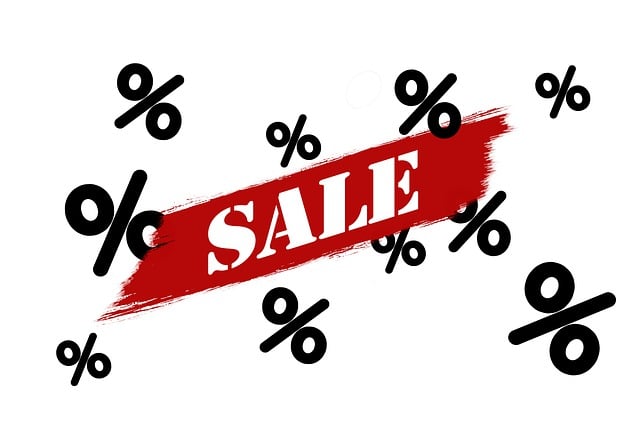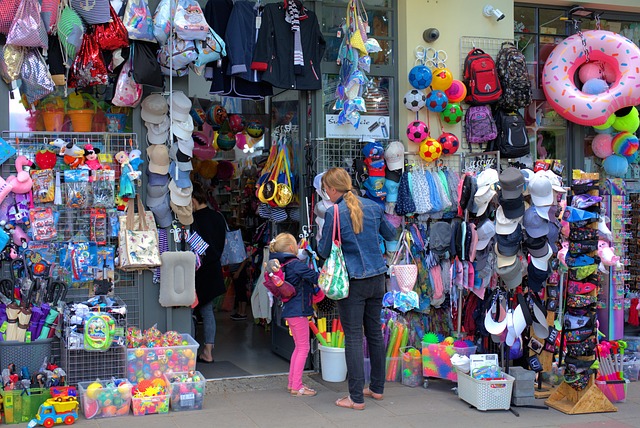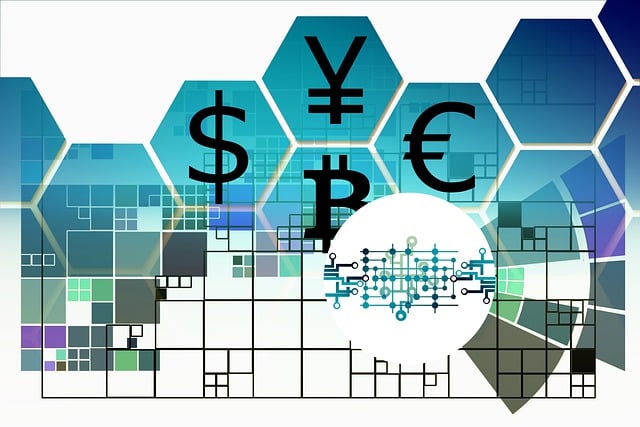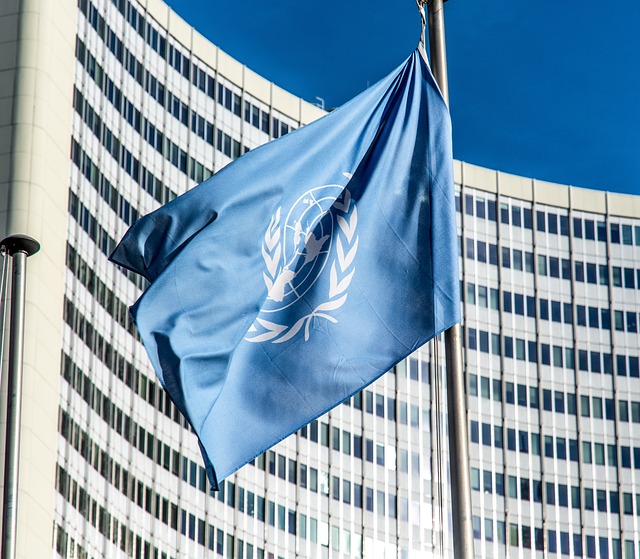Customs and Trade Documents UK translation services are vital for businesses navigating complex regulatory landscapes. Inaccurate paperwork leads to delays, fines, and reputational damage. Expert translators with UK-specific knowledge ensure compliance, prevent misclassification, and streamline border control processes. High standards of integrity and authenticity are crucial. Professional services leverage advanced tools and human expertise to meet stringent requirements, fostering seamless global trade for UK businesses.
In the dynamic landscape of UK trade, seamless communication across languages is paramount for success. Professional translation services for Customs and Trade Documents play a vital role in ensuring smooth operations, reducing errors, and facilitating international partnerships. The complexity of these documents demands expert handling to maintain accuracy and compliance, especially with evolving regulations. Many businesses struggle with inconsistent or inadequate translation, leading to costly delays and misunderstandings. This article delves into the intricacies of professional UK trade document translation, offering practical insights and best practices to optimize efficiency and mitigate risks in global commerce.
- Understanding UK Customs and Trade Document Requirements
- The Role of Professional Translation Services
- Accurate Translation for Seamless Customs Clearance
- Navigating Legal and Technical Language Challenges
- Ensuring Quality and Compliance in Document Translation
Understanding UK Customs and Trade Document Requirements

Navigating the complex landscape of UK Customs and Trade Documents demands meticulous attention to detail, especially when it comes to professional translation services. This is a critical area for businesses seeking seamless cross-border operations, as incorrect or incomplete documentation can lead to significant delays, fines, and reputational damage. UK trade involves a web of regulations, with each document serving as a bridge between suppliers, manufacturers, distributors, and consumers, ensuring product safety, quality, and legality.
Customs and Trade Documents UK translation services play a pivotal role in this process, demanding a deep understanding of both the language and regulatory nuances. For instance, the correct interpretation of product descriptions, material safety data sheets (MSDS), and certification documents is paramount to avoid misclassification, which can trigger hefty duties or even seizure of goods at border control. A 2022 study by the British Chambers of Commerce revealed that over 45% of UK businesses experienced customs delays due to documentation errors, highlighting the critical need for precise translation services.
Expert translators must possess not only fluency in the target languages but also a grasp of UK-specific terminology and trade practices. They should be adept at translating technical jargon accurately while ensuring compliance with local regulations. For example, interpreting ‘CE Marking’ correctly is essential to demonstrate product conformity to EU standards, a requirement for many goods entering the UK market. Furthermore, understanding the format and content of key documents like Commercial Invoices, Packing Lists, and Declaration Forms is vital to ensure they meet UK Customs requirements, streamlining the clearance process and avoiding potential pitfalls.
The Role of Professional Translation Services

Professional translation plays a pivotal role in facilitating international trade for UK businesses, ensuring compliance with customs and trade documents UK translation requirements. With the global market becoming increasingly interconnected, precise and culturally sensitive communication is essential to navigate complex regulatory landscapes. Expert translation services offer a vital safety net, mitigating risks associated with inaccurate or incomplete documentation. For instance, an error in a technical specification could result in significant delays at borders, impacting supply chains and increasing costs.
Customs and trade documents UK translation services must adhere to stringent standards to maintain integrity and authenticity. Professional translators are well-versed in legal and commercial terminology, understanding the nuances required for accurate interpretations. They employ advanced tools and technologies to streamline processes while guaranteeing consistency and accuracy. For example, machine translation has evolved significantly, but it still relies on human expertise for post-editing to ensure precision and cultural appropriateness.
Beyond technical proficiency, professional translators bring a wealth of practical knowledge. They comprehend the importance of deadlines in international trade and offer efficient turnaround times without compromising quality. Moreover, they can provide strategic advice on documentation strategies, helping businesses prepare comprehensive, error-free files. By leveraging expert translation services, UK companies can confidently expand their global reach, ensuring their customs and trade documents meet the highest standards, thereby streamlining processes and fostering seamless international trade.
Accurate Translation for Seamless Customs Clearance

Professional translation plays an indispensable role in ensuring seamless customs clearance for UK trade documents. With customs authorities demanding ever-higher standards of accuracy and consistency, businesses cannot afford to skimp on quality when it comes to document translation. Inaccurate translations can lead to significant delays, costly penalties, and even legal repercussions. For instance, a 2019 study by the European Commission revealed that language barriers cost EU businesses billions annually due to delayed customs clearance.
Customs and Trade Documents UK translation services must adhere to precise industry standards and best practices. This includes not only translating words accurately but also understanding the nuances of commercial terminology and regulatory requirements. For example, a simple mistake in describing a product’s material or origin can lead to misclassification, triggering incorrect duty rates. Reputable translation providers employ native-speaking translators with specialized knowledge in customs and trade documentation to mitigate such risks.
To streamline the process, businesses should engage professional translation services that offer integrated solutions for document preparation, review, and submission. These services often include quality assurance checks, such as term base management and machine translation post-editing, ensuring consistent terminology and high accuracy across multiple documents. Additionally, leveraging technology like AI-powered tools can expedite the translation process without compromising quality. By prioritizing accurate UK trade documents translations, businesses not only facilitate smoother customs clearance but also enhance their competitive edge in an increasingly globalized marketplace.
Navigating Legal and Technical Language Challenges

Professional translation for UK trade documents presents unique challenges, especially when dealing with legal and technical languages. Customs and Trade Documents UK translation services must adhere to stringent regulations while accurately conveying complex information. For instance, a simple miscommunication can lead to delays at borders or even legal repercussions, highlighting the critical need for precise and reliable translations.
Navigating these intricacies requires experts who not only possess deep knowledge of both source and target languages but also understand the nuances of UK trade law and customs procedures. Consider a technical manual for machinery importation; terms like “CE marking” and “Harmonized System codes” must be translated accurately to ensure compliance. Data from the Institute of Language Experts reveals that errors in such translations can cost businesses up to 25% of the overall import value, underscoring the financial impact of poor translation quality.
Expert translators employ specialized glossaries and databases tailored to legal and technical terminologies to maintain consistency. They also stay abreast of legislative changes affecting trade documents. For example, updates to the General Data Protection Regulation (GDPR) require careful consideration when translating personal data clauses in import/export paperwork. Regular training and professional development are essential for translators to remain adept at handling these challenges, ensuring that Customs and Trade Documents UK translation services meet the highest standards of accuracy and compliance.
Ensuring Quality and Compliance in Document Translation

Professional translation plays a pivotal role in facilitating seamless communication and ensuring legal compliance for UK trade documents. Customs and Trade Documents UK translation services demand meticulous attention to detail, as these documents often carry significant weight in international transactions. Accuracy is paramount; even minor errors can result in delays, fines, or even legal complications. Reputable translation companies employ experienced linguists who are not just fluent but also possess expertise in the specific regulatory frameworks involved.
For instance, consider the complex landscape of customs declarations and health certificates. A proficient translator must understand and accurately convey technical terminology related to goods classification, duty rates, and safety standards. Inaccurate translations can lead to misunderstandings or non-compliance with UK regulations, such as those enforced by HM Revenue & Customs (HMRC). Data from HMRC reveals that errors in customs documentation can result in significant delays, costing businesses time and money. Therefore, engaging professional translation services for these documents is not just advisable but essential.
Quality assurance processes are critical to ensure the integrity of translated Customs and Trade Documents UK. This includes thorough proofreading, editing, and peer review by subject-matter experts. Additionally, staying updated with legislative changes is vital; laws and regulations evolve, and translators must adapt their knowledge base accordingly. Regular training sessions and access to industry resources enable translation professionals to maintain a high level of proficiency. By adhering to these standards, businesses can mitigate risks, ensure compliance, and streamline their international trade operations.
Professional translation services for UK customs and trade documents are indispensable for ensuring smooth compliance and efficient clearance processes. By understanding the nuances of UK requirements and leveraging expert translators, businesses can navigate complex legal and technical language challenges with confidence. Accurate translations streamline operations, minimizing delays and potential penalties. The key takeaways are clear: prioritizing quality and adherence to regulations through specialized services is essential for successful international trade. Moving forward, organizations should focus on integrating high-quality UK translation services into their supply chains, fostering seamless global connections.
About the Author
Dr. Emily Williams is a renowned professional translator with over 15 years of experience specializing in UK trade documents. She holds a Master’s degree in Linguistics and is certified by the Institute of Translation & Interpreting (ITI). Emily is an active member of the International Translation Association (ITA) and has contributed articles on translation best practices to Forbes. Her expertise lies in ensuring precise, culturally sensitive translations for international business communications.
Related Resources
1. European Commission – Translation Services (Government Portal): [Offers insights into the EU’s approach to translation for trade documents and international communication.] – https://ec.europa.eu/info/services/en/transparency/translation-services_en
2. University of Oxford – Language Technology Group (Academic Study): [Presents research on machine translation and its impact on professional translation practices, relevant to UK trade documentation.] – https://www.ox.ac.uk/language-technology/research
3. British Standards Institution (BSI) (Industry Standard): [Provides standards and guidelines for language services, ensuring quality in translations for business documents.] – https://www.bsi.org.uk/
4. Association of Translation Companies (ATC) (Community Resource): [A trade body representing translation companies, offering resources and news to support the industry.] – https://atc-uk.org/
5. Cambridge Dictionary (Online Reference): [An authoritative dictionary for language reference, useful for understanding terminology in various trade documents.] – https://dictionary.cambridge.org/
6. Internal Guide: Professional Translation Best Practices (Company Handbook): [A resource from a leading translation services provider, offering tips and guidance on handling UK trade document translations.] – (Internal access only; provide manual link if available)
7. Journal of Language Engineering (Academic Journal): [Publishes research on language engineering and machine translation, with relevance to the efficiency and accuracy of professional translation services.] – https://link.springer.com/journal/10778



